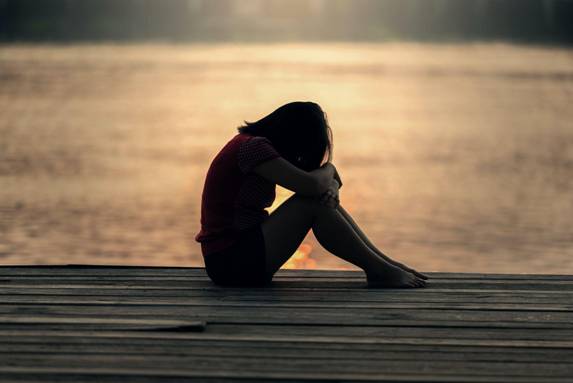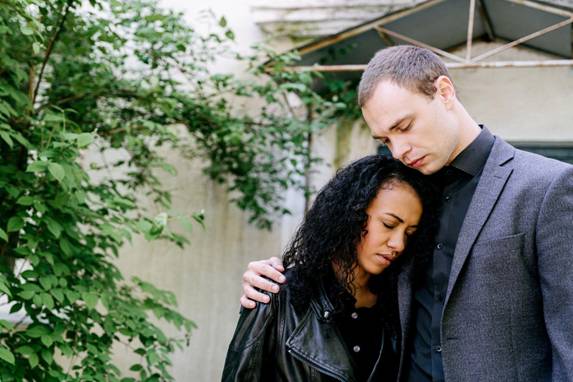When Grief Brings Guilt, Here’s You Can Cope With Guilt in Mourning

Losing someone you dearly love is one of the toughest life experiences we can ever feel. When we lose a loved one, grief is a natural response. And while I’ve seen people confuse sadness with grief, it’s more than that. With grief, there are so many emotions attached that it’s common to lose sight of the most obvious ones. One of the emotions is guilt. Grief and guilt are so intertwined that they feel almost the same at times.
There could be a hundred things that can give birth to the guilt you’re feeling. Maybe you didn’t tell your loved one about how much they meant enough, maybe you didn’t do enough, or maybe you gave up on your efforts. Whatever the reason, there is always a moment after the loss when guilt rises and you blame yourself for something that was never in your control in the first place.
So, why does guilt accompany grief? What makes us experience guilt with grief? Are signs of guilt easy to spot when in mourning? Can we cope with guilt in grief?
Let’s find the answers to these questions in today’s article.
Why We Feel Guilt with Grief?

Guilt often creeps into our mourning because of various reasons. One of the most common reasons could be unresolved or unfinished business. Sometimes, we might have unresolved issues with the one we lost. Maybe the last conversation ended in an argument or you said something rude to them the last time you saw them. This can make you feel guilty.
Another common pattern I’ve noticed when guilt accompanies grief is survivor’s guilt. If there was an incident where you survived but your loved one did not, then it can cause survivor’s guilt. You might spend your grieving period wondering why you’re here when they are not.
There have been times in my life when I’ve regretted not spending time with my grandparents before they passed. I find myself longing for the days when I had my grandparents around and I wanted to spend time with my friends rather than with them. This sort of regret often turns into guilt when you realize that you can’t change the past.
There has been a study from 2014 that talks about the role of self-blame and regret in coping with loss. They suggest that self-blame and regret are the most frequently identified forms of guilt in bereavement.
Strangely enough, one of the reasons you feel guilty could be because you feel relieved at their passing, especially when they were in pain or suffering when they were alive. This relief you feel can trigger guilt because you think you have no right to feel this way.
Signs of Guilt During Grief

Recognizing guilt within grief can help you cope with it well. So here are the signs of guilt in grief that you need to watch out for;
- You constantly blame yourself for the loss
- You find yourself saying “If only I…” a lot
- You feel responsible for the loss, even when it was out of your control
- You experience intrusive and obsessive thoughts
- You deny taking care of yourself
- You indulge in substances to cope with the loss
- You avoid social situations
- You engage in self-sabotaging situations
Coping With Guilt During Grief

To manage and cope with guilt when you’re grieving, you can try these helpful strategies;
- Know that guilt is a part of grief and is normal. It’s OK to feel this way. Instead of ignoring or avoiding it, accept it. Accepting guilt with grief doesn’t make you a bad person.
- Talk about your feelings with someone you trust. It could be a friend, a family member, or even a grief counselor. Talking about your guilt and the regret you’re feeling can help ease some of the emotional burden.
- When grieving, remember to be kind to yourself. Remember that you did the best you could and whatever happened isn’t your fault or your responsibility to shoulder.
- Seek professional help if guilt becomes overwhelming and affects your daily life. Talking to a therapist or counselor who specializes in grief and loss can help you make sense of your feelings and how you can cope with them.
- You can also honor your loved one’s memory by creating rituals or sharing their best memories to help ease feelings of guilt. You can create a scrapbook, plant a tree, or start a charity in their name if you can.
- Don’t forget to take care of your physical health and emotional needs. Eat well, get enough sleep, and engage in activities that bring you comfort and peace. Your loved one would not want you to stew in guilt and grief all the time.
- If you have unresolved issues with your lost loved one, then try to forgive them or yourself. You can try writing a letter to them, expressing your feelings, and letting go of all the regrets and bitter feelings you’re holding close to your heart.
Wrapping Up…
Grief is a complex but unique journey for each person, and even though guilt often walks hand in hand with grief, your mourning period should not be overcome with guilt all the time. Remember that healing takes time, and it’s okay to reach out for help when you need it.
Be kind and patient with yourself and allow yourself to process the loss and mourn in your little ways. With time, hopefully, the weight of guilt may lighten, and you can find peace and acceptance while honoring your loved ones and recalling the precious moments you had with them.
“Grief is like the ocean; it comes on waves, ebbing and flowing. Sometimes the water is calm, and sometimes it is overwhelming. All we can do is learn to swim.” – Vicki Harrison
I hope this article will help you understand the link between guilt and grief and how to accept feelings of guilt during grief. Let me know your thoughts about this article in the comments below.
Take Care!




















